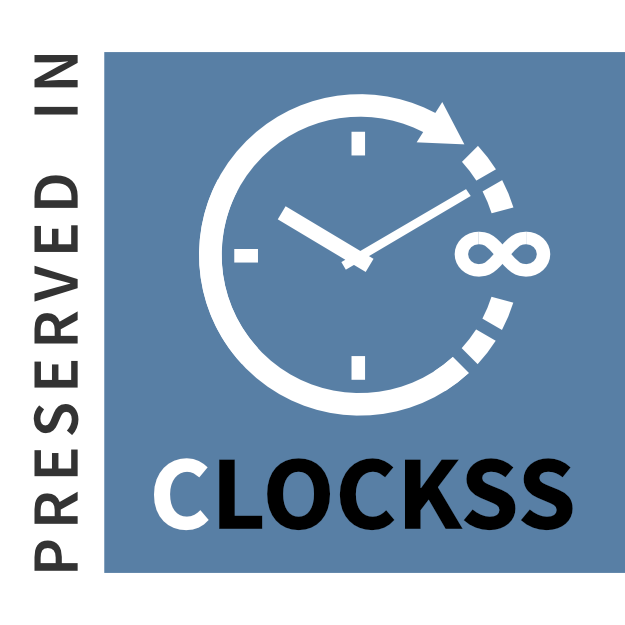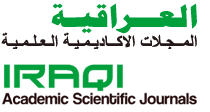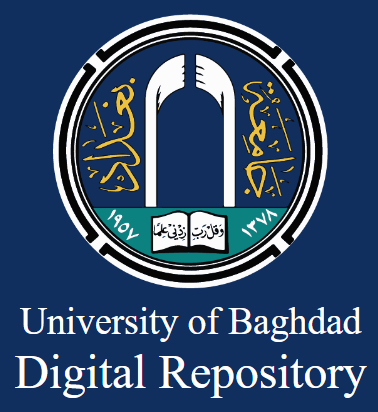Designing a module in light of cognitive learning theories and their impact on the achievement of students of the Department of Art Education and their motivation in learning the subject of aesthetics.
Abstract
This research aims to:
1 – Make a proposed module for (aesthetics) for the second stage - Department of Art Education under education theories.
2 - Verification from the effect of the proposed module on student achievement and motivation towards learning aesthetics material.
To verification the second goal we wording these two hypotheses:
1- There are no individual differences with statistically significant at level (0.05) between the student's scores average. (Experimental group ) who studied according to the proposed module and the average student's scores (control group) who studied in the usual way for the achievement test for the Aesthetics material.
2- There are no individual differences with statistically significant at level (0.05) between the student's scores average. (Experimental group) who studied according to the proposed module and the average student's scores (control group) who studied in the usual way for the motivation measurement for the Aesthetics material.
This research is limited to the following determinants.
1 – The times temporal: first semester in the academic year 2011-2012
2 – The area temporal for second stage - Department of Art Education - college of Fine Arts in Baghdad
3-The objectivity temporal: The proposed module for Aesthetics according to under the education theories .
The second chapter includes two units, the first units (oriented cognitive science), and the second unit handled (relationship aesthetic experiences stereotypes units), and we can notes these two units in chapter two .
Third chapter show the search procedures of (module design, make the achievement test, and design experience of the unit).
The fourth chapter discussed the most important result after application module proposed (Experimental group.) according to plan teaching
And the researcher supported his opinion with the most important conclusions of the results, and the Researcher gives some recommendations in light of the results and the conclusions of research, at the end of the chapter researcher suggested some useful suggestion for Subsequent study.
References
أبو ريان، محمد علي: فلسفة الجمال ونشأة الفنون الجميلة. (القاهرة: دار الجماعات، 1997).
أبو علام، رجاء محمد: علم النفس التربوي ، (الكويت: دار القلم، 1986).
أحمد سليمان عودة وخليل يوسف الخليلي: الإحصاء للباحث في التربية والعلوم الإنسانية، (عمان: دار الفكر، 1989).
الازيرجاوي، فاضل محسن: أسس علم النفس التربوي، (العراق: جامعة الموصل، 1991).
جورج أي فيرغسون: التحليل الإحصائي في التربية وعلم النفس، (بغداد: دار الحكمة، 1991).
جون كونجر وآخرون: سيكولوجيا الطفولة والشخصية، تر: محمد عبدالعزيز، (القاهرة: دار النهضة العربية، 1970).
الخليلي، يوسف خليل: التحصيل الدراسي لدى طلبة التعليم الاعدادي، (المنامة: وزارة التربية، 1997).
الخوالدة، محمد محمود وآخرون: طرق التدريس العامة، ط1، (صنعاء: مطابع الكتاب المدرسي)، 1977م.
الدريج، محمد: التدريس الهادف، ط1، (الرياض: دار العلم، 2004).
روبرت مبكر: الأهداف التربوية، تر: جابر عبدالحميد، بغداد: ب. ط، 1967)
الزند، وليد خضر: التصاميم التعليمية-الجذور النظرية- نماذج وتطبيقات عملية، (الرياض، ب. ط، 2004).
الزوبعي، عبدالجليل إبراهيم، وآخرون: الاختبارات والمقاييس النفسية، (الموصل: دار الكتب، 1981).
الزيود، نادر فهمي وآخرون: التعلم والتعليم الصفي، ط1، (عمان: دار الفكر، 1989).
سامي محمد ملحم: سيكولوجيا التعلم والتعليم الأسس النظرية والتطبيقية: (عمان: دار المسيرة، 2010).
سعدية عمر علي بهادر: أطوار ميادين الاكتشاف: مجلة تكنولوجيا التعليم، ع5، 1980.
صبحي خليل عزيز: أصول وتقنيات التدريس والتدريب، (بغداد: مركز التعريب والنشر، 1985).
عاقل فاخر: علماء نفس أثروا في التربية، ط1، (سوريا: دار شعاع للنشر والعلوم، 2004).
عبدالجبار البياتي وزكريا أثناسيوس: الإحصاء الوصفي والاستدلالي في التربية وعلم النفس، (بغداد: الثقافة العامة، 1991).
عبدالرحمن عدس: علم النفس التربوي، (عمان: دار الفكر، 1988).
عبدالسلام مصطفى: اتجاهات حديثة في تدريس العلوم، (القاهرة: دار الفكر العربي، 2001).
الغريب، رمزية: التقويم والقياس النفسي والتربوي، (القاهرة: دار النهضة العربية، 1962).
فاخر عاقل: معجم العلوم النفسية، ط1، (بيروت: دار الرائد، 1988).
قطامي، يوسف وآخرون، تصميم التدريس ، (عمان: دار الفكر، 2000).
قطامي، يوسف: تفكير الأطفال وطرق تعلمه، (عمان: الدار الأهلية، 1990).
قطامي، يوسف: نماذج التدريس الصفي، ط2، (عمان: دار الشروق، 1998).
محسن علي عطية: أسس التربية الحديثة وتنظيم التعليم، (عمان: دار المناهج، 2010).
محمد بو بكري: موقع الوحدة الإسلامية www.Alwihdah .com
محمد صلاح الدين مجاور، فتحي الديب: المناهج المدرسي أسسه وتطبيقاته التربوية (الكويت: دار القلم، 1967).
محمد عبدالرحمن: الإنسان (القاهرة: الأنجلو المصرية، 1976).
محمد غلاب: الخصوبة والخلود في انتاج افلاطون، مذاهب وشخصيات، (القاهرة: ب. ط، 1962).
محمد متولي غنيمة: التخطيط التربوي، (عمان: دار المسيرة، 2005)
نادية شريف: أثر استخدام المنظمات المسبق والأسلوب المعرفي على التعلم، مجلة دراسات تربوية، القاهرة، المجلد الرابع، ج (17).
يعقوب حسين نشوان: المنهج التربوي من منظور إسلامي، ط1، (الأردن: دار فرقان، 1992).
Pruner: Studies in cognitive growth, New York, June 1968.
Johan Dewey: Art as experience , mintors , balchand co. New York, 1934. P.39














